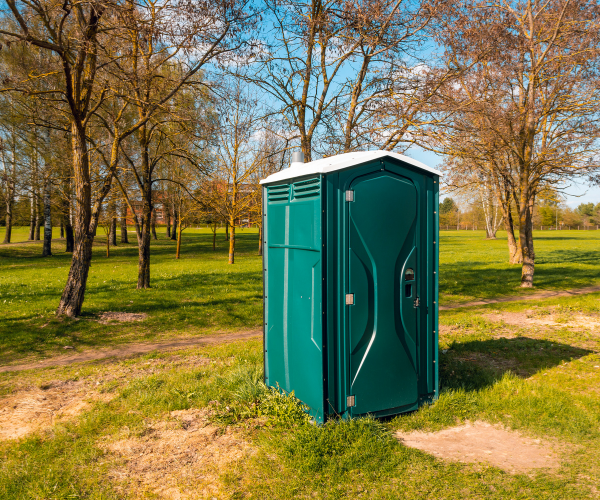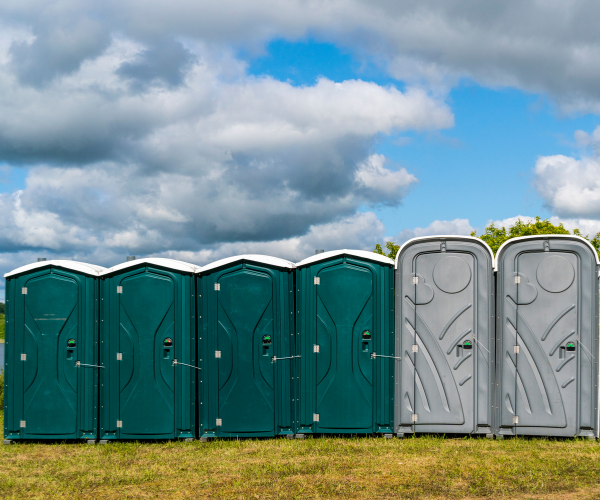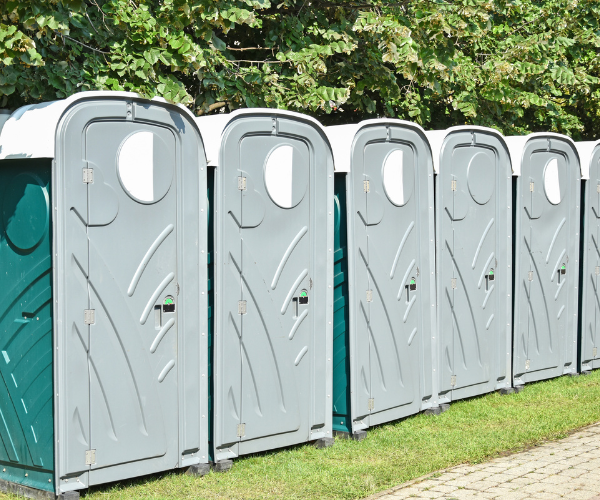Portable Toilets offer several eco-friendly advantages that benefit both the environment and users. Firstly, they require significantly less water compared to traditional toilets, conserving crucial water resources, particularly in areas prone to drought. The specialized chemical processes used in Portable Toilets treat waste on-site, reducing the need for extensive plumbing and sewage infrastructure, which can have larger environmental impacts over time. Another ecological benefit is their mobility, allowing them to be positioned in remote locations without disturbing natural habitats or landscapes. This is especially integral for outdoor events like festivals or construction projects in environmentally sensitive areas, ensuring minimal disruption to the surrounding ecosystem. Portable Toilets also contribute to reduced energy consumption since they are often maintained and serviced by vehicles that can transport multiple units simultaneously, maximizing fuel efficiency and lowering carbon emissions related to sanitation logistics. Furthermore, many modern Portable Toilet units incorporate components made from recycled materials, directly supporting recycling initiatives that reduce landfill waste and the demand for virgin materials. Comprehensive waste management protocols ensure that waste collected in Portable Toilets is disposed of responsibly at treatment facilities designed to convert waste into usable resources, such as biofuels or fertilizers, closing the loop on waste use. The flexibility and operational efficiency inherent in Portable Toilets not only support environmental sustainability but also foster a broader culture of responsible resource management that aligns with global ecological goals. In sum, opting for Portable Toilets as a sanitation solution enhances environmental conservation efforts and promotes awareness of sustainable practices, making it a preferred choice in an increasingly eco-conscious society.

Portable Toilet Rentals in Anniston, Georgia
Call today for a free quote (770) 215-0134
Portable Toilet
Fast, Easy, & 100% Free To Get Started
30 Years Of Excellence
With more than 30 years of experience, we proudly serve Anniston by delivering unmatched dedication and craftsmanship. Our deep-rooted history reflects our unwavering commitment to superior quality and customer satisfaction.
Unmatched Quality Service
Our dedication to providing exceptional service ensures that each portable toilet is meticulously cleaned, well-maintained, and promptly delivered for your convenience.
Fast, Reliable Delivery
Experience swift and reliable Portable Toilet services with our efficient delivery system, ensuring that your units arrive right on schedule every time.
Reliable Portable Toilet Options in Anniston, Georgia
Call for a Free Quote Today
(770) 215-0134
At our Portable Toilet company in Anniston, we pride ourselves on being dependable, reliable, and locally owned. We provide top-notch portable sanitation solutions for construction sites, parties, festivals, and weddings, ensuring your event or project runs smoothly without any sanitation worries. Whether you're in Anniston or nearby areas, our team is committed to delivering clean, well-maintained, and convenient portable restrooms tailored to your needs. You can trust our expert service backed by years of experience in the industry. Choose us for a seamless experience and peace of mind, knowing you're in capable hands. Our goal is to provide spotless and comfortable facilities that enhance the quality of your event.


Our standard porta john rental units are durable and reliable for any commercial build site, housing development, public works project, or remodel job.Features include dome lighting, grated floors, and an “In-Use” locking mechanism for privacy and comfort. Regularly maintained, inspected, and cleaned by FusionSite at your location.

Developed as an alternative to full ADA-compliant restrooms, the Liberty is a spacious, wheelchair-accessible unit that can also be promoted as a family-sized restroom. Includes a patented flat-floor system for easy wheelchair access and maneuverability.Handrails, paper holder, and rotary latch are designed for simple, intuitive end-user operation.

Portable hand washing stations are essential for keeping your work site sanitary and clean. Features hands-free foot pumps, liquid soap, and paper towels.Perfect for job sites without water hookups, these units can handle hundreds of washes between services.
We Proudly Serve
Standard Portable Toilets
Our Standard Portable Toilets service offers convenient sanitation solutions for any outdoor event throughout Georgia.
High Rise Portable Toilets
High Rise Portable Toilets provide elevated convenience and sanitation services ideal for skyscrapers and multi-level construction sites.
Restroom Trailers
Restroom Trailers in Anniston by Georgia Container offer luxury and comfort for upscale events and large gatherings.
Roll off Dumpsters
Roll off Dumpsters at Georgia Container in Anniston provide efficient waste management solutions for construction and renovation projects.
Septic Tank Cleaning
Our Septic Tank Cleaning service in Georgia ensures efficient waste management and trouble-free operation of septic systems.
Grease Trap Cleaning
Professional Grease Trap Cleaning in Anniston helps maintain efficient kitchen operations by preventing clogs and odors.
Fencing & Barricades
Fencing & Barricades by Georgia Container in Georgia offer secure perimeter solutions for construction, events, and crowd control.
Residential Storage
Our Residential Storage service in Anniston, Georgia, offers safe and convenient storage solutions for household needs.
Anniston Portable Toilet Services
Getting a quote and scheduling delivery for a Portable Toilet has never been easier. Our streamlined process allows you to quickly fill out a simple form on our website to receive an estimate tailored to your needs. Whether you're planning a small gathering or a large festival, our team ensures that all logistics are handled smoothly. We specialize in accommodating last-minute requests and are always ready to offer guidance and personalized support throughout the rental process. Our dedicated customer service team is only a call away, ready to assist you with any inquiries or additional requirements you may encounter along the way. Enjoy the peace of mind that comes with partnering with experienced professionals committed to making your experience seamless and stress-free.

Experience Anniston, Georgia's charm with our Portable Toilet services, tailored to elevate your outdoor events. Whether it's the thrill of the annual Knox Concert Series or a day at the stunning Longleaf Botanical Gardens, our clean and dependable units offer the comfort and convenience your guests need. We are dedicated to enhancing the guest experience, making every occasion unforgettable and stress-free. Anniston's natural beauty and vibrant events perfectly complement our services, taking any gathering to new heights of enjoyment. Our attention to local appeal makes us the premier choice for Portable Toilets in Anniston, seamlessly delivering convenience to any event.
Discover why we are the top choice for Portable Toilets in Anniston. Our strong ties to the local community and deep understanding of Anniston's specific needs allow us to deliver personalized service that consistently surpasses expectations. We offer state-of-the-art portable restrooms for various events, including intimate weddings and large corporate gatherings. Our experienced team collaborates closely with clients to thoroughly meet their requirements, establishing us as Anniston's trusted partner.
Our Portable Toilet company excels in delivering fast, reliable services perfect for any event. With a fleet of new units and a dynamic team, we ensure prompt delivery to keep your event on track without any stress. Our dedication to quality means each unit arrives spotless, ready for instant use, and backed by a promise of swift assistance whenever required. Trust us as your dependable provider and enjoy the ease of exceptional service designed to fit your schedule seamlessly.
Anniston: Learn More About Our Portable Toilet
Renting a Portable Toilet in Anniston is straightforward and convenient through our website. Start by locating the form at the top or bottom of our web pages where you can request a quote. This form is designed to be user-friendly, requiring only essential details including your first name, last name, phone number, and email. Making use of the 'Get A Quote' buttons throughout our site can further streamline this process. These prominently displayed buttons take you directly to the form, ensuring you don't miss out on any details. Once your information is submitted, our experienced team promptly reviews your request to offer a personalized quote that addresses your specific needs. Additionally, if any changes or additional requests arise, our customer service team remains readily available to adjust your rental details as needed for optimal satisfaction. Beyond the online option, our phone line is always open, providing personal assistance and guidance for those who prefer direct communication. In choosing to rent with us, you gain access to immediate support, ensuring your rental experience is not only convenient but completely stress-free from start to finish. This comprehensive service approach ensures that regardless of the size or scope of your event or project, every aspect of your Portable Toilet rental is handled with professionalism and care, all while keeping the process efficient and user-centric.
The delivery timeframe for Portable Toilet orders is designed to be as efficient as possible, ensuring our units arrive right when you need them. Typically, we recommend placing your order at least 48 hours in advance to guarantee availability and accommodate any specific requirements you might have. However, for urgent needs or last-minute events, our team is always ready to expedite the process and strive to deliver even on short notice. Our standard delivery sequence ensures you receive your Portable Toilets promptly, ideally arriving well ahead of the event to allow for optimal setup and inspection. Key factors ensuring timely delivery include the strategic location of our warehouses and a dedicated logistics team that prioritizes routes based on your proximity and urgency. Packaging each unit with utmost care, we transport them safely to your site, and our delivery personnel perform quick on-site checks to ascertain all equipment functions correctly before departure. We dispatch numerous delivery vehicles regularly, supported by an advanced tracking system to monitor each consignment right until it reaches your hands, keeping you informed at each stage. As we value your time and convenience, we also supply you with precise delivery windows upon confirmation of your booking, which further aids in planning and reduces any scheduling conflicts at your end. In essence, while each event may entail varying demands, our efficiency-oriented framework consistently ensures that your Portable Toilet needs are met with punctuality and professionalism, strengthening our reputation as a reliable service provider.
Fully equipped to meet your event or construction needs, we offer a comprehensive range of portable sanitation solutions. Our services accommodate festivals, sporting events, weddings, corporate gatherings, family reunions, and other occasions requiring dependable sanitation. We provide various units to suit any event, including luxury restroom trailers for upscale gatherings, standard porta potties for large outdoor events, and ADA-compliant units to ensure accessibility for all attendees. Complementing these are our roll-off dumpsters, ideally suited for construction sites, along with portable sinks and hand sanitizer stations to uphold hygiene standards. Our offerings also include fencing and barricades for effective crowd control, ensuring safe and smooth event operations. This extensive selection guarantees that no matter the size or type of your event or project, we can handle it with ease and professionalism. Our skilled service team expertly manages logistics, ensuring seamless setup and removal to keep disruptions to a minimum. By choosing us, you gain access to a wide array of options and reliable service, designed to enhance your event experience and ensure comfort for all.

